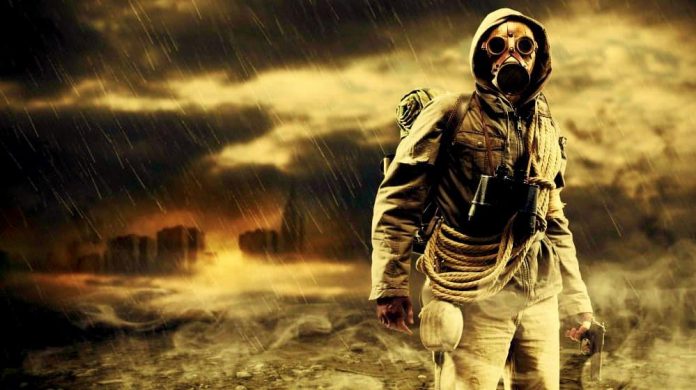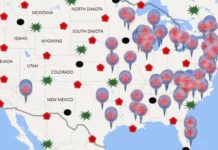Rural vs Urban prepping has always been a contentious topic in the preparedness community. There have been healthy debates on which type of prepper has the greatest chance of survival in a collapse scenario.
Advantages and Disadvantages
Crime Rate
- There is a lower crime rate for rural preppers compared to urban.
- Many claims that when the golden horde comes they will invade the rural area.
- This may be true, but the likelihood of such an event is small.
- Regardless, if they were to invade the rural area it would be after the urban area.
- By the time they get to rural, they are going to be exhausted and depleted for the most part.
- Of course, there may be sophisticated groups that may have many resources.
- By the time they get to the rural area, you should be ready for them.
- Now when everything is running fine it will be safer to live in a rural environment.
- However, in an SHTF or collapse scenario lawlessness will probably take place in rural environments before rural environments.
- The main reason that I would propose would be manpower.
- In the city, the government would most likely lockdown with curfews or even martial law.
- For example, when Katrina hit New Orleans we saw the government impose martial law and deploy the military into the city to restore the rule of law.
- They didn’t do this in rural areas.
- However, even in a collapse or SHTF scenario I still believe there will be more crime in urban environments than rural.
- In rural environments, I believe the community will come together and look out for their own.
Resources
- Living in an urban environment does give you access to store-bought resources.
- However, in an SHTF scenario, those resources will be depleted.
- Living in an urban environment will not afford many the ability to begin growing or hunting their own resources.
- With a higher population comes a higher rate of consuming those resources.
Infrastructure
- Being close to the city typically provides a better job pool.
- Compared to living in the country or rural parts you are limited to particular jobs.
- There are typically more stores that give you better access to certain items.
- Rural living typically takes more time and money to access the infrastructure.
- In an SHTF or collapse scenario urban environments are most likely to have the infrastructure restored as compared to rural environments.
- This is because essential government offices are there.
Population
- Living in urban environments typically give you access to a bigger network of friends and others that could provide a benefit.
- For example, you may be able to find more people who are preparedness or survival minded.
- However, social circles in urban environments tend to be looser.
- In rural environments, social circles are more close-knit.
- There is more of a community and family feel.
- Growing up in a rural environment the community was more likely to look out for the well being of the community.
- However, when I moved to the city when I got older I realized how people there don’t value relationships or community as much.
- With higher populations; you tend to encounter more problems especially when it comes to the crime rate.
- Even though for the most part, rural environments provide close-knit ties there is going to be less of them.
- So there is a probability that you would be on your own in an SHTF scenario.
- With higher populations comes higher consumption of resources.
Communication
- In a collapse or SHTF scenario, the news is going to travel faster in urban environments because there are more people.
- However, again with more people come more problems.
- So there is a higher likelihood that news will be distorted.
- The more that messages are passed around the higher the probability for error.
- Rural areas are more likely to receive the news last as it will take longer to get there.
- By the time it does the message has been changed so many times due to distortion.
Medical Care
- In a collapse or SHTF scenario, there is going to be more access to medical assistance in urban environments then there would be in rural environments.
- However, at the same time, with more people, it is easier to spread diseases.
- Most people in urban environments are more reliant on the grid and infrastructure to provide proper hygiene care.
- In a rural setting, you are most likely to have access to more resources so that you can better take care of yourself.
- However, there isn’t as much access to medical care as there would be in urban environments.
- Furthermore, in an SHTF scenario recovery relief efforts are going to focus on the cities first.
- So rural preppers will not have quick access to those relief efforts including medical care.
Space
- In urban environments, especially apartment prepping, you are very limited on how much you can stockpile.
- Yes, you can find creative ways to fit more.
- However, the truth is that you have more space to stockpile in rural environments than you do in urban environments.
- Not only that but you have the ability to grow, hunt and raise your own food.
- The downside to that is that you have more space to protect.
- If you have a few acres of land how much of that are you going to be able to protect with a family of 3 or 4?
- You could bring in a survival group but they are going to expect resources in return.
Conclusion
- So altogether these would be some of the advantages and disadvantages that see when considering rural vs urban prepping.
- Ultimately my goal is to become a rural prepper.
- However, I’m not saying that is what everyone should do.
- Every prepper should have their own strategic preparedness plan put together.
- Everyone has their own specific threats that they are preparing for.





















